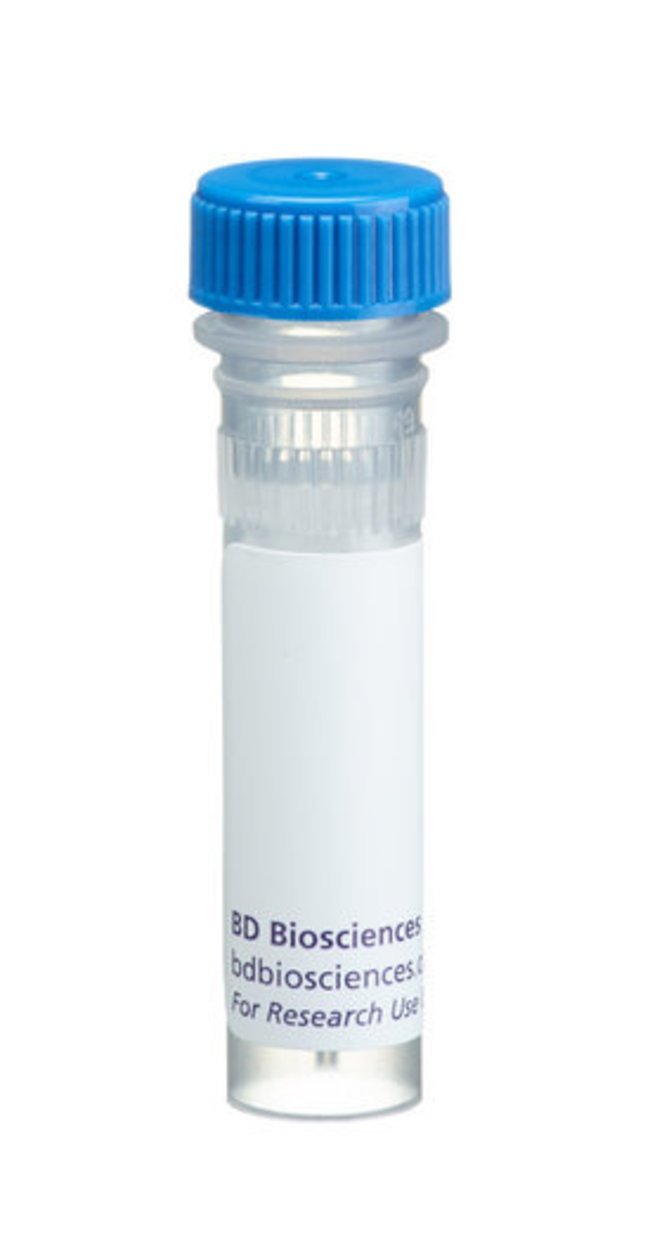CD178 Mouse anti-Human, Unlabeled, Clone: NOK-2, BD, Mouse Monoclonal Antibody, Each

Details:
Fas (APO-1, CD95) is a 45kDa cell surface protein that mediates apoptosis when cross-linked with agonistic anti-Fas antibodies or Fas ligand (FasL). Fas belongs to the TNF (tumor necrosis factor)/NGF (nerve growth factor) receptor family, and is expressed in various tissue and cells including the thymus, liver, ovary, and lung. FasL is a 40kDa TNF family membrane protein that induces apoptosis by binding to Fas, its cell-surface receptor. FasL is expressed on activated T and NK cells. Both Fas and FasL are thought to play an important role in the apoptotic processes that take place during T cell development. NOK-2 recognizes human FasL. It recognizes both the membrane bound (FasL) and soluble (sFasL) forms. L5178Y mouse T lymphoma cells expressing recombinant human FasL were used as immunogen. FasL and sFasL migrate at reduced molecular weights of 40 and 26kDa, respectively. However, the molecular weights observed in a particular sample may vary according to FasL and sFasL glycosylation and breakdown patterns as described in Tanaka et al.
Additional Information
| SKU | 10133842 |
|---|---|
| UOM | Each |
| UNSPSC | 12352200 |
| Manufacturer Part Number | 556376 |
